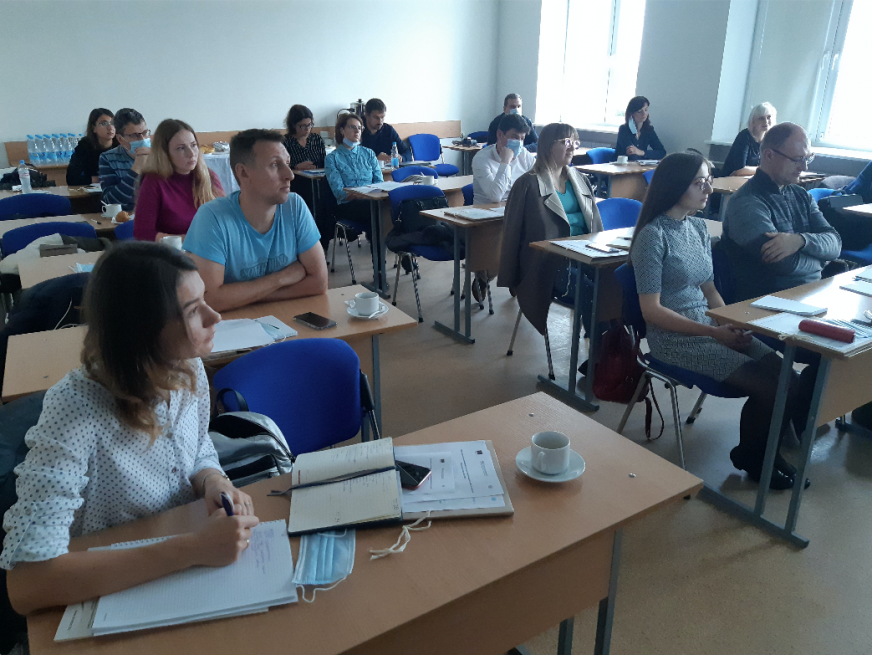
Circular economy, which is also a compelling business model and a new modern industrial practice for the countries of Eastern Europe, needs to be further studied at different levels of professional education – in universities, in the systems retraining specialists, and in the advanced training of professionals.
For this reason, the School of Business from the Belarusian State University, within the framework of the EU-funded EU4Environment Action, has recently developed a special training course for retraining specialists on Resource Efficiency and Cleaner Production (RECP). The course, as a part of an advanced program designed to further develop the professional expertise of specialists in resource efficiency, is one of the first of its kind. Professionally oriented, yet highly engaging and with a clear practical application, it provides 13 ECTS credit points to all enrolling students, with a section on Circular Economy corresponding to approximately 3 ECTS credit points.
The curriculum on Circular Economy is based on models and practices that have already been developed and adopted in the European Union. An important segment, in this sense, is devoted to the study of programmes and relevant documents adopted in the EU, the study of analytical reviews, and of industrial applications available in various European and other countries in the world.
In addition, the training course provides a detailed study of the methodology for assessing and improving resource efficiency in existing production processes. It encompasses the examples of Belarusian enterprises that took part in the EU-funded EaP GREEN Programme for the Eastern Partnership countries in 2014-2017. These examples are covering the sectors of food production, construction materials, and chemicals production industries. The new academic course also equips students interested in these and other sectors of the economy with the best available techniques (BATs), which are described in the EU Best Available Techniques reference documents (BREFs) of the Integrated Pollution Prevention and Control (IPPC) Directive, the EU documents related to eco-design, waste management, and industrial symbiosis, and other relevant Directives that apply to the study of Circular Economy.
The new educational programme, which was launched at the Belarusian State University in September 2020, is officially included in the system of retraining specialists in industrial ecology. As it already has a firm base in the academic syllabus, it might also be used in other universities across Belarus.





